Okay I’m Currently Furious That Migraines Are Often So Blindly Easy To Treat And I Had To Find This
Okay I’m currently furious that migraines are often so blindly easy to treat and I had to find this out myself at the age of 26 when I’ve been to a neurologist since I was 11 lol so I’m about to teach you two neat and fast little tricks to deal with pain!
The first is the sternocleidomastoid muscle, or the SCM muscle.
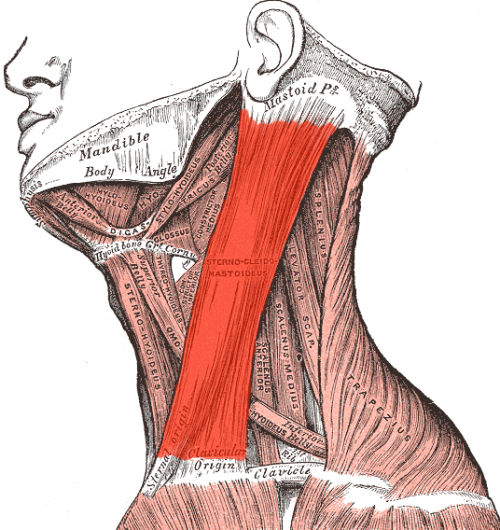
This big red section is responsible for pain around the eye, cheekbone, and jaw, as well as some temple pain. Literally all you have to do is angle your head down a little, angle it away from the side that hurts, and then you can gently pinch and rub that muscle. I find it best to start at the bottom and travel upwards. The relief is so immediate! You can increase pressure as you feel comfortable doing so.
Here is a short and easy video showing this in action
The second is a fast and easy stretch that soothes your vagus nerve, which is the nerve responsible for calming you down. The vagus nerve, for those unfamiliar, is stimulated by deep breathing such as yawning, sighing, singing, or taking a deep breath to calm your anger in a tense situation.
You can stretch this out by sitting up as straight as possible (this does not have to be perfect to work) and interlacing your fingers. Put your hands on the back of your head with your thumbs going down the sides of your neck and, while keeping your face forward, look all the way to one side with just your eyes. Hold that until you feel the urge to breathe deeply or yawn, or until you can tell there’s a change. Then do the same thing on the other side. When you put your arms down, you should clearly be able to turn your head farther in both directions. If the first session doesn’t get rid of your migraine, rest and repeat as many times as necessary. I even get a little fancy with it and roll my eyes up and down along the outer edge sometimes to stretch as much as I can.
If you need a visual here’s a good video on it. I know some of the language they use seems questionable but this is real and simple science and should not be discarded because it’s been adopted by the trendy wellness crowd!
I seriously cannot believe I didn’t hear a word of this from any doctor in my life. Additionally, if you get frequent recurring migraines, you may want to see a dietician. Migraines can be caused by foods containing histamines, lectin, etc. and can also be caused by high blood pressure in specific situations such as exercise, stress, and even sex.
If any of this information helps you I’d love to hear it btw! It’s so so fast and easy to do. Good luck!
More Posts from Solarpiracy and Others
The basics of growing food
So, growing food sounds very intimidating, and in reality, it’s something people knew how to do thru all history, and it’s made even easier by new methods of ‘no till’ and ‘no dig’ garden. I didn’t know almost anything about it until 3 years ago, when I got a plot in a community garden and started growing food with no experience. Still it went good! Here’s what I learned:
The basics are as simple as ‘if you put a seed underground and keep it wet, it’s going to come out.’ If you start off from that, even if you know nothing else, eventually you will succeed. The additional stuff is done to ensure success. The biggest actual issue of gardening isn’t how, but when. When are you supposed to put all the seeds underground to get good harvest? For most of the plants, it can be as simple as 'Spring’. For others, it’s very important just when in the spring you plant it.
Let’s say you want to start your first garden, you want to plant some onions, lettuce, peas, green beans, tomatoes, peppers and zucchini. All of these can be planted in the spring! But these plants are sorted in 2 categories: Those who can survive a frost, and those who cannot. We call these 'frost hardy’ (those who survive the frost) and frost-tender (those plants will die if they’re exposed to lower than 0 temperatures). From the ones I listed, onions, lettuce and peas are frost hardy! It means you can plant them very early in spring, such as February and March, and they can be hit with snow and ice and be just fine. They can also be planted in autumn, and they only really start growing in the spring.
Green beans, tomatoes, peppers, and zucchini are frost-tender, meaning you absolutely can’t grow them before the chance of freezing temperatures is gone. This is known in gardening as 'the last frost date’. Every area has a different last-frost date, so it’s good to google yours to be sure you’re planting these when it’s safe to do so. For me it’s mid-April.
Now, since it’s a long time to wait for your plants to grow if you’ve only planted the seeds in mid April, people have found a way around it by planting the seeds in little containers inside of their house, or in a greenhouse, so they grow in a nice warm place on a windowsill, and are moved out in the ground when it’s warm and safe. This is a very fun thing to do as you will have bunch of little plants growing in your home. Important thing to know about it is to use really light and airy soil, not garden soil, (you can use forest soil!) and to make sure you’re not over-watering them and you give them as much light as possible.
Soil is another big thing in gardening, the grass grows so easily from it, but you can’t exactly plant your seeds into the grass; they will get suffocated. For a long time people have tilled the ground to make it empty of all the weeds and easy to handle; however this isn’t healthy for the soil, because it ruins the quality of top-soil, exposes it to sun and wind erosion, and it dries up very easily. Here are some beneficial methods of gardening: mulching and no-dig. Mulching means adding stuff like hay, straw, tree leaves, woodchips, pine needles on top of the soil. You’re protecting your soil from sun, wind, erosion, drying out, and if your mulch is thick and dark enough, no weeds will grow in your garden. You are gardening by science.
So what does this mean for you, when you’re standing before a patch of grass, thinking of turning it into a garden? You need to do this months before the actual planting, using time to your benefit is the smartest thing a gardener can do. You pick a patch of land and bring in everything you can on top: cut grass, hay, tree leaves you raked or found, straw if you have any, woodchips, anything that will stop the grass from growing. If you really want to build up your soil you can bring in compost too! All that organic material will eventually turn into compost and fertilize your garden as it degrades to soil. It’s important to not mix it with the soil, and to only keep it on top of the plants. Mixing it will deplete the soil of nitrogen, and you need nitrogen to grow anything green. If you keep bringing in organic material for years of gardening, and on top of that put some compost as well, in 3-5 years your soil will become so rich and soft you will no longer have to use tools to plant in it.
But, hey, if it’s your first time, you don’t need to aim for perfection. If you didn’t prepare your soil in the fall, whatever! You can still pull the weeds, dig around a little to make some clear soil, and plant your stuff! I’ve done this last-minute planting and it works just fine. Mulching and adding organic material is only the easiest, most scienc-y way to garden.
The next big thing in gardening is spacing and depth: how far apart should your plants be? And how deep to plant them? For depth, the rule of the thumb is 'twice as deep as the seed is tall’. But I’ve seen people pull various shit in this area and succeed so do what you want. As of spacing, I would also say, try out what fits for you. It takes a year of gardening to get a sense of just how big the plants get, and what would be ideal spacing for each of them. I decided only on my third year to plant tomatoes VERY far apart, because I realized in this case, one plant will give me more than 8kg tomatoes and it’s much less work than planting 3 times as many plants that are close together. Peas seem to like to grow close tho, for some reason. Sometimes you can decide you want a bunch of tiny plants because you’ll eat them young, so you don’t space them on purpose, people do that with lettuce, leeks, spinach. If you want your plants as big as possible with as much yield as possible, give them half a meter and see what happens.
Fertilization is another big thing in gardening; if you add a lot of compost and mulch your garden consistently, you won’t need a lot more; however there’s a cool free trick you can do (if you’re not currently sick): you can mix your urine with 10x water, and water your plants with that. And I really mean mix it with 10x water! Plants can get very fried by it and start to wilt if they’re bombed with too much fertilizer at once! There are rules for this: use it when you want your plants to grow a lot of greenery, not if you want them to flower or produce fruit. This fertilizer is rich in nitrogen, and nitrogen inspires plants to grow more leaves! If you wanna fertilize them later in their growth, put a lot of nettle plants in a big container with water, leave it in the sun for 10 days; when it starts to smell real bad, it’s ready. (you can also do this with comfrey). Also dilute it with 10x water! Don’t use these fertilizers on bean or pea plants, or any legume, they don’t like it.
Now I’ve given you so much info at once, you’re probably struggling to take it all in, so here’s a good youtube channel where I learned all I know: Roots and Refuge. If you watch this lady garden for long enough, she will tell you all of the secrets.
I remember being a first time gardener overwhelmed with worry; what if I fail, what if nothing grows, what if I kill all the plants, what if I have a black thumb, what if the plants die because I am stupid, what if I put all of this work in and get nothing, what if people make fun of me, what if I run into problems I won’t be able to solve. Here are some of the answers to these!
A part of what you grow will DEFINITELY DIE. I can guarantee it, it happens to everyone, every single garden in the world has had plants die, sometimes for no reason at all, but in no case will EVERYTHING die. We all count on a part of our plants dying, becoming slug food, not doing well in general, and we always plant 30% more than we absolutely need. Even if you are personally responsible for killing the plants, the plants will not hold it against you! Plants appreciate you spreading their seed regardless of success, they understand that by trying multiple times you will eventually succeed and they absolutely want you to learn thru occasional failure. The answer is again to plant a lot, and it never ever happened that nothing came out of it. Most often, it’s not going to be your fault at all. Sometimes the year will be good for tomatoes and carrots, and bad for peas. It’s all okay! Because you just planted extra peas, and you’ll get more tomatoes than you expected to have.
If you have the desire to plant food, you do not have a black thumb; the green thumb is in the heart that yearns to grow. You’re not stupid if your plants die, plants die for everyone. And people are likely to come at you with million advice; listen to no one, try everything yourself. If they make fun of you, they’re gonna look real stupid when you have home-grown food. Any problem you might run into while gardening is google-able! Or you can join a page of gardeners and they’ll be happy to identify the issue.
The real main issue with gardening are slugs and bug-type pests, and that is a problem for another day because all I know to do is to yeet those away by hand and shake my finger very sternly at them. Hope this helps!

European bison released in England’s ancient woodland have doubled in number since 2022, and the woodland has gotten healthier since, reviving previously extinct beetle species and increasing sightings of dormice and reptiles. And England isn’t the only European nation getting bison back in business: In the 1920s, there were just 54 European bison after intense hunting over millennia, but thanks to re-wilding efforts there are now around 10,000, mostly in Russia and Belarus. RTBC
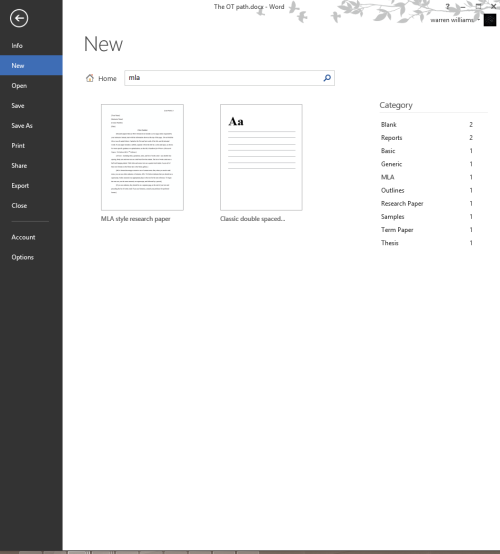
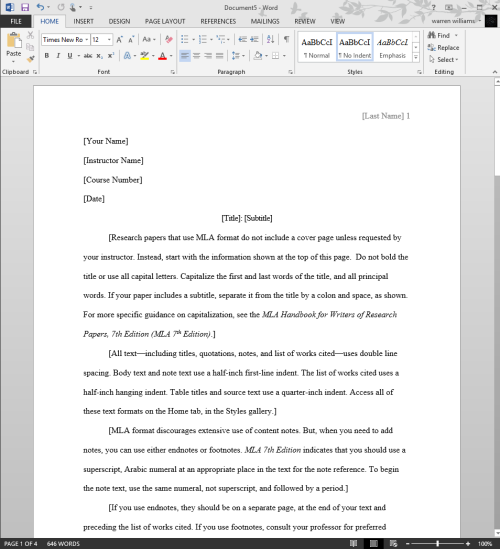
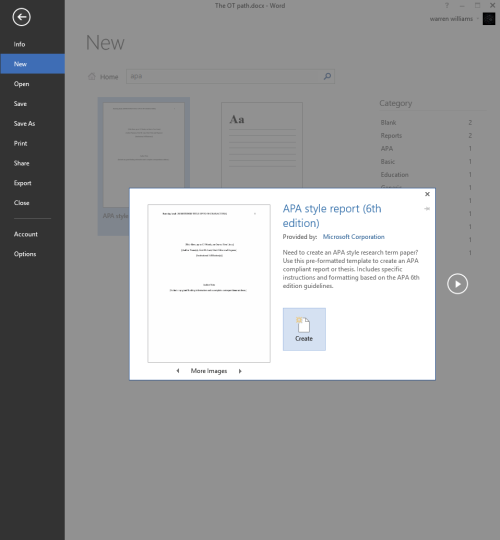
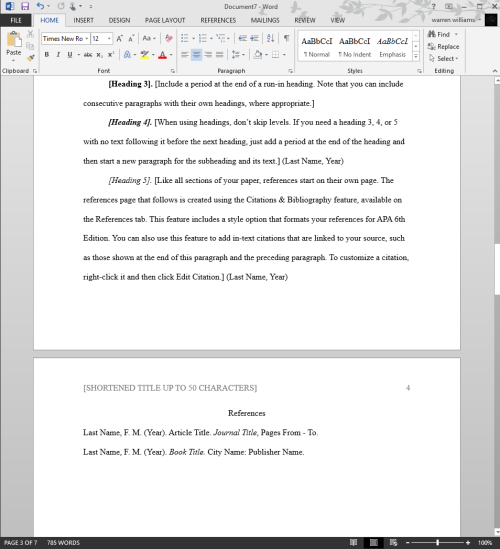
A note to all college kids, So Microsoft word has default settings for papers.
If you search MLA, or APA you can get an entire paper template.
REPEAT: Microsoft word will Format your entire paper!
You never have to spend hours lining everything up again.
incredibly funny to realise the US supports single-family zoning so much on the exact same material basis as the Wehrbauer system
Beethoven — Fur Chiken
Very cold take but the reason I think a lot of settler vegans view meat as murder (and therefore immoral) is because they cannot get past their colonial mindset of viewing all interactions as either consumption or domination instead of the reality of a vast web of mutually beneficial and self sustaining relationships with the ecosystem and eachother
i'm begging you guys to start pirating shit from streaming platforms. there are so many websites where you can stream that shit for free, here's a quick HOW TO:
1) Search for: watch TITLE OF WORK free online

2) Scroll to the bottom of results. Click any of the "Complaint" links

3) You will be taken to a long list of links that were removed for copyright infringement. Use the 'find' function to search for the name of the show/movie you were originally searching for. You will get something like this (specifics removed because if you love an illegal streaming site you don't post its url on social media)

4) each of these links is to a website where you can stream shit for free. go to the individual websites and search for your show/movie. you might have to copy-paste a few before you find exactly what you're looking, but the whole process only takes a minute. the speed/quality is usually the same as on netflix/whatever, and they even have subtitles! (make sure to use an adblocker though, these sites are funded by annoying popups)
In conclusion, if you do this often enough you will start recognizing the most dependable websites, and you can just bookmark those instead. (note: this is completely separate from torrenting, which is also a beautiful thing but requires different software and a vpn)
you can also download the media in question (look for a "download" button built into the video window, or use a browser extension such as Video DownloadHelper.)

DOGE just froze funding to vital Federal and Indigenous conservation programs devoted to supporting the very delicate and tenuous existence of the black-footed ferret.

I fell in love with these animals as a kid traveling to our National Parks. Their rarity and ferocity made me sharply aware, even as a child, of just how much of a responsibility we have toward our environment. I can't bear the thought of them being a fucking casualty of Trump and Musk.

Look at them! They do war dances.

For anyone looking for free zines on Black resistance, policing and activism, Sherwood Forest Zine Library in Austin, Texas, United States has a huge online collection for you to explore.










02/14/2025
-
 profoundstrawberrydestiny liked this · 4 weeks ago
profoundstrawberrydestiny liked this · 4 weeks ago -
 transmascgoblin liked this · 4 weeks ago
transmascgoblin liked this · 4 weeks ago -
 whatthe4355 reblogged this · 4 weeks ago
whatthe4355 reblogged this · 4 weeks ago -
 fireheartedpup reblogged this · 4 weeks ago
fireheartedpup reblogged this · 4 weeks ago -
 bonnieandclaide reblogged this · 4 weeks ago
bonnieandclaide reblogged this · 4 weeks ago -
 bonnieandclaide liked this · 4 weeks ago
bonnieandclaide liked this · 4 weeks ago -
 shadowgamer223 reblogged this · 4 weeks ago
shadowgamer223 reblogged this · 4 weeks ago -
 jancelasaurus reblogged this · 4 weeks ago
jancelasaurus reblogged this · 4 weeks ago -
 mo0nrune liked this · 4 weeks ago
mo0nrune liked this · 4 weeks ago -
 chaoticskyy liked this · 4 weeks ago
chaoticskyy liked this · 4 weeks ago -
 falloutelephant liked this · 4 weeks ago
falloutelephant liked this · 4 weeks ago -
 jachelrames liked this · 4 weeks ago
jachelrames liked this · 4 weeks ago -
 arts-and-hearts liked this · 4 weeks ago
arts-and-hearts liked this · 4 weeks ago -
 garbageforclothes liked this · 4 weeks ago
garbageforclothes liked this · 4 weeks ago -
 waitformereprise liked this · 4 weeks ago
waitformereprise liked this · 4 weeks ago -
 mental-health-sideblog reblogged this · 4 weeks ago
mental-health-sideblog reblogged this · 4 weeks ago -
 sqoiler liked this · 4 weeks ago
sqoiler liked this · 4 weeks ago -
 toawk reblogged this · 4 weeks ago
toawk reblogged this · 4 weeks ago -
 chaoticmentalitybird liked this · 4 weeks ago
chaoticmentalitybird liked this · 4 weeks ago -
 little-moonbird liked this · 4 weeks ago
little-moonbird liked this · 4 weeks ago -
 baymaxnostalgia liked this · 4 weeks ago
baymaxnostalgia liked this · 4 weeks ago -
 thelittleredheadedmusician reblogged this · 4 weeks ago
thelittleredheadedmusician reblogged this · 4 weeks ago -
 willypadilly reblogged this · 4 weeks ago
willypadilly reblogged this · 4 weeks ago -
 willypadilly liked this · 4 weeks ago
willypadilly liked this · 4 weeks ago -
 futurehascurves liked this · 4 weeks ago
futurehascurves liked this · 4 weeks ago -
 now-tryagain liked this · 4 weeks ago
now-tryagain liked this · 4 weeks ago -
 starite-wishes liked this · 4 weeks ago
starite-wishes liked this · 4 weeks ago -
 wilsons-hotlittleprettyboymouth reblogged this · 4 weeks ago
wilsons-hotlittleprettyboymouth reblogged this · 4 weeks ago -
 wilsons-hotlittleprettyboymouth reblogged this · 4 weeks ago
wilsons-hotlittleprettyboymouth reblogged this · 4 weeks ago -
 laughingcaffeine liked this · 4 weeks ago
laughingcaffeine liked this · 4 weeks ago -
 afractalparticle reblogged this · 4 weeks ago
afractalparticle reblogged this · 4 weeks ago -
 cosmiqr liked this · 4 weeks ago
cosmiqr liked this · 4 weeks ago -
 alexandra-hamilton reblogged this · 4 weeks ago
alexandra-hamilton reblogged this · 4 weeks ago -
 alexandra-hamilton liked this · 4 weeks ago
alexandra-hamilton liked this · 4 weeks ago -
 miirym2000 liked this · 4 weeks ago
miirym2000 liked this · 4 weeks ago -
 willlifegetbetter reblogged this · 4 weeks ago
willlifegetbetter reblogged this · 4 weeks ago -
 st-bell liked this · 4 weeks ago
st-bell liked this · 4 weeks ago -
 sapphee reblogged this · 4 weeks ago
sapphee reblogged this · 4 weeks ago -
 acerebral liked this · 4 weeks ago
acerebral liked this · 4 weeks ago -
 esevik liked this · 4 weeks ago
esevik liked this · 4 weeks ago -
 thedumbginger liked this · 4 weeks ago
thedumbginger liked this · 4 weeks ago -
 torabdos liked this · 4 weeks ago
torabdos liked this · 4 weeks ago -
 canyoncryptid liked this · 4 weeks ago
canyoncryptid liked this · 4 weeks ago -
 skipplayrepeat reblogged this · 4 weeks ago
skipplayrepeat reblogged this · 4 weeks ago -
 journalerthecricket liked this · 4 weeks ago
journalerthecricket liked this · 4 weeks ago -
 seriouslyamerica reblogged this · 4 weeks ago
seriouslyamerica reblogged this · 4 weeks ago -
 ancientcrone-blog liked this · 4 weeks ago
ancientcrone-blog liked this · 4 weeks ago -
 yeoldenews liked this · 4 weeks ago
yeoldenews liked this · 4 weeks ago

a repository of information, tools, civil disobedience, gardening to feed your neighbors, as well as punk-aesthetics. the revolution is an unending task: joyous, broken, and sublime
211 posts